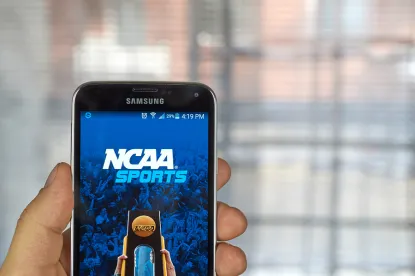President Joe Biden has named Peter Sung Ohr to serve as Acting General Counsel of the National Labor Relations Board (NLRB or Board). Ohr has served as the Regional Director of the NLRB Chicago office for nearly a decade.
While the Regional Director, Ohr is best remembered in the world of collegiate sports for his 2014 landmark decision finding scholarship football players at Northwestern University to be “employees” under the National Labor Relations Act (NLRA or Act), and thus eligible for union membership.
Ohr concluded the amateur scholarship-players performed services under the control of, and for the benefit of, their “employer” (Northwestern University) and the value of the football scholarship was compensation.
As a result,
Ohr ruled “all grant-in-aid scholarship players for the Employer’s football team who have not exhausted their playing eligibility are ‘employees’ under the National Labor Relations Act.”
Northwestern appealed Regional Director Ohr’s ruling. The election was held, but the ballots were impounded and never counted. The five-member NLRB unanimously rejected Ohr’s finding and ended the unionization effort. Northwestern University, 362 NLRB 1350 (2015).
The Board declined to assert jurisdiction of the Act over the players, but avoided the ultimate question of whether the college football players were “employees” under the law.
The Board dismissed the case; the ballots were never counted.
The Board concluded that allowing the football players to unionize could lead to competitive imbalance by creating different standards at schools regarding terms of negotiated compensation and mandatory practice requirements.
The Board’s dismissal of the case left open the “employee” status of college football players (and collegiate athletes in general). On January 31, 2017, Richard Griffin, Jr., NLRB General Counsel and President Barack Obama appointee, issued a memorandum clarifying his position on the employee status of scholarship football players. Griffin contended that scholarship football players at Northwestern were employees and opined that other student-athletes could be considered employees.
The NLRB General Counsel is the Board’s top lawyer and acts as “prosecutor” for the NLRB. General Counsel opinions are not the law. General Counsel Griffin’s position did not last long, as he was replaced in due course by Peter Robb, a President Donald Trump appointee. In December 2017, Robb expressly rescinded the Griffin memorandum.
Has the question come full circle?
With Ohr being named Acting NLRB General Counsel, will he reinstate Griffin’s 2017 memo in an effort to confirm his Northwestern ruling?
It seems likely that advocates of this position will be encouraged by Ohr’s appointment. We expect an increase in union representation petitions for student-athletes, not just in football, but also other Division I scholarship sports such as basketball, baseball, soccer, and hockey. Additionally, if Ohr reverts back to GC-17-01, expect an increase in unfair labor practice charges from student-athletes claiming colleges, including their coaching staffs, have infringed upon their protected concerted activity rights under the Act.
In light of Ohr’s appointment at a time when numerous legal issues relating to name, image, and likeness rights for student-athletes and antitrust issues surround the NCAA and college sports, the potential of employee status for scholarship athletes is significant.
While President Biden acted quickly to fire General Counsel Robb and appoint Ohr as his personal selection to serve as Acting General Counsel, one open question is whether Ohr will assert his authority while serving as the Acting General Counsel to repeat his landmark regional decision on a national level.




 />i
/>i

